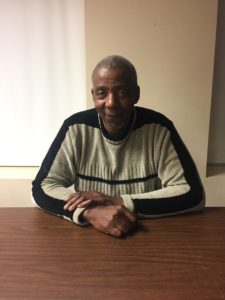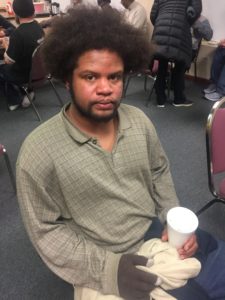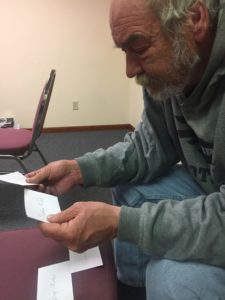Guiding Principles:
1. Meet me where I’m at
Reduce the barriers - don't discriminate against people struggling with addiction, mental illness, etc.
- “Some of them have been guests of the CFH or other shelters in town. But each one of the facilities in town has a structure. There are certain rules and regulations you have to follow in order to stay there – the most prominent one: no drugs or alcohol. Some people can’t stay off that stuff.” – Peter Lombardo
- “You have to let the drug users in if you’re going to help them.” – David

- “I was not on the verge of ‘addicacy.’ I’m not an addict, not technically. I’m like half and half.” – Silas

2. Make it convenient
Bring the services to the them - don't make themwork hard to seek them out. Make it easy for them to say yes.
- “The Oaklawn Center is a long walk. About 30 minutes. That might keep some people from going.” -Steve B.
- Practically all of the services that Steve B., Steve A., and Ed use on a daily basis are within 10 minutes of walking.
- According to Peter, many homeless in the regional area travel to South Bend seeking out the convenience of the services.
3. Remind me what a good day is
“Good days are all the same. I have a couple beers a day. I never drank before, but now I’m drinking a lot more than I used to cause that’s what keeps it coherent. I don’t even know what would make a bad day anymore. They’re all bad.” -Ed

“Getting caught out in the weather during the day – that would be a bad day. A good day? Everything goes like it’s supposed to. Make appointments on time.” – Steve
Users generally lack structure in their day. They have minimal interactions with other homeless or citizens, and these interactions are often tense. On a normal day, they have nothing to look forward to.